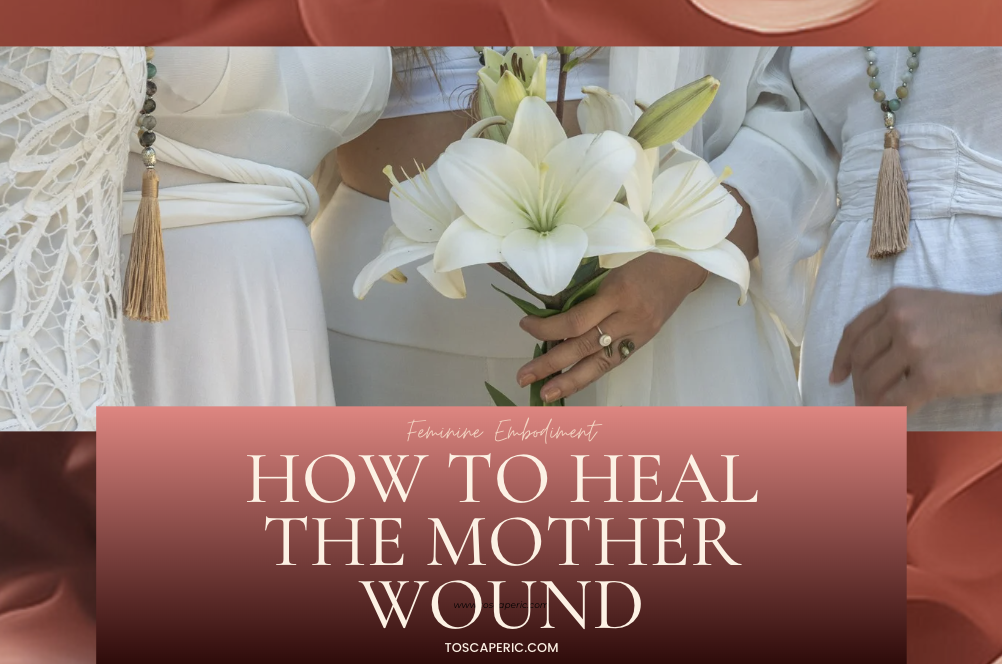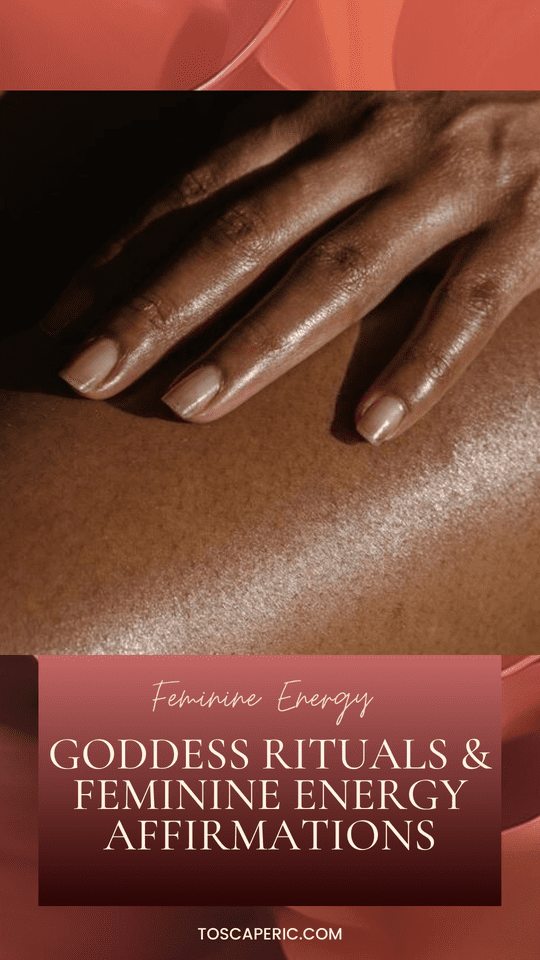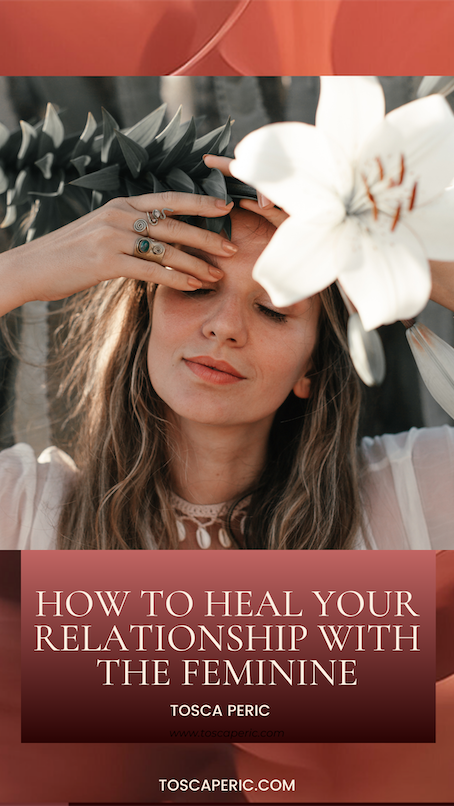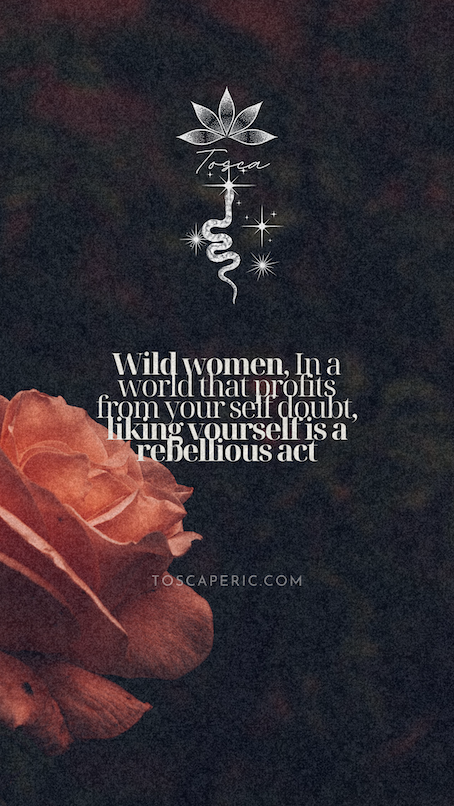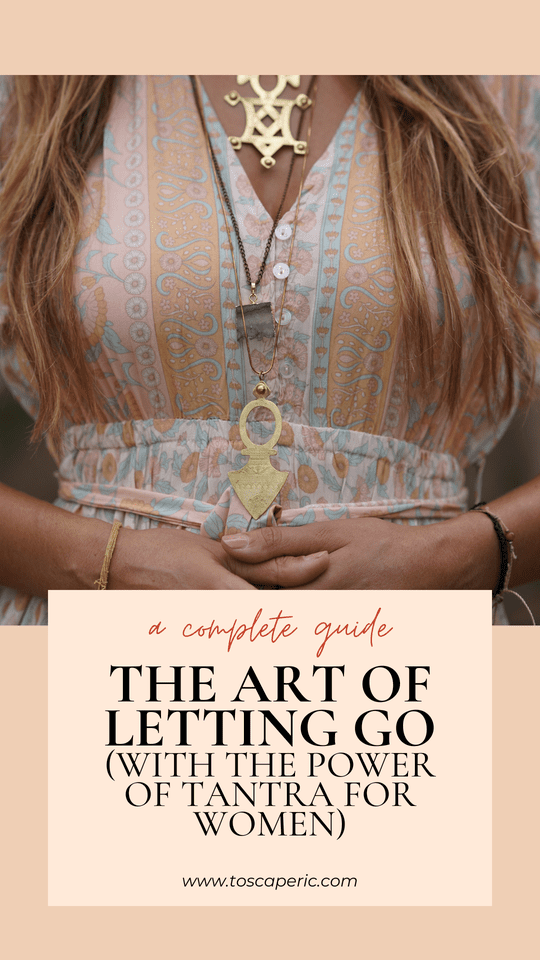I am Tosca
Welcome Goddess!
The mother wound is a concept that resonates deeply with many women, though it often remains unspoken. It is the generational pain passed from mother to daughter—rooted in societal expectations, unhealed traumas, and the unspoken grief of what it means to be a woman in a world that has often demanded silence. Healing the mother wound is an act of radical self-love, one that not only frees you but also creates a ripple effect of empowerment for those around you.
In this post, we’ll explore what the mother wound is, how it manifests in your life, and, most importantly, how you can begin to heal it. At the end, I’ll introduce Goddess Medicine, my online program designed to guide women toward profound self-discovery and healing.
What is the Mother Wound?
The mother wound isn’t about blaming your mother—it’s about understanding the lineage of pain and the emotional patterns handed down through generations. This wound can manifest as feelings of inadequacy, self-doubt, or a sense that you must overperform to be worthy of love. It often stems from:
- Cultural expectations that prioritize sacrifice over self-fulfillment for women.
- Unresolved traumas from your mother’s life that were unknowingly passed to you.
- Generational silence around topics of grief, abuse, and unmet emotional needs.
Recognizing the mother wound allows you to break free from these cycles. It empowers you to reclaim your self-worth and rewrite the narrative for yourself and future generations.
Further mother wounds can be:
Emotional Suppression
- Being taught that expressing emotions is a weakness.
- Feeling like you had to suppress your feelings to avoid upsetting your mother or others.
Over-Nurturing or Enmeshment
- A mother who overprotected or smothered you, leaving you with a lack of independence.
- Feeling responsible for your mother’s emotions or well-being, as if you had to parent her.
Emotional (Co-)Dependency
- Feeling responsible for your mother’s emotions: Growing up, you may have felt it was your duty to “fix” your mother’s moods or make her happy, leaving little room for your own emotional needs.
- Struggling with boundaries: If your mother relied on you for emotional support in a way that felt excessive or inappropriate, you may now find it difficult to set boundaries in relationships.
- Difficulty trusting your emotions: You might second-guess your feelings, especially if they conflict with what you were taught to prioritize—such as your mother’s comfort or approval.
- Replicating dependency in relationships: As an adult, you might seek relationships where you unconsciously replay the role of caretaker or expect others to fulfill emotional voids, creating imbalances.
- Fear of independence: Being emotionally enmeshed with your mother might lead to guilt or fear when trying to assert independence or make decisions that differ from hers.
The Feeling of “Not Good Enough”
- Unrealistic expectations: Your mother may have set impossible standards, leaving you feeling like you could never meet them, no matter how hard you tried.
- Internalized criticism: If you faced frequent judgment or correction, you might have developed an inner critic that perpetually tells you you’re not doing enough.
- Conditional love: Growing up feeling that love was only given when you behaved a certain way or achieved specific things can leave you with a deep sense of inadequacy.
- Comparison to others: If your mother compared you to siblings, peers, or even herself, it may have instilled a belief that you’re inherently less worthy.
- Perfectionism and people-pleasing: The “not good enough” wound often drives a compulsion to overachieve or seek validation from others to compensate for feelings of inadequacy.
- Fear of failure or rejection: This wound can manifest as a fear of taking risks or being vulnerable, as failure feels like proof of your perceived inadequacy.
Join The Letting Go Club
12 Month Journey of Feminine Embodiment, Self-love, Sisterhood, Letting Go & Musings
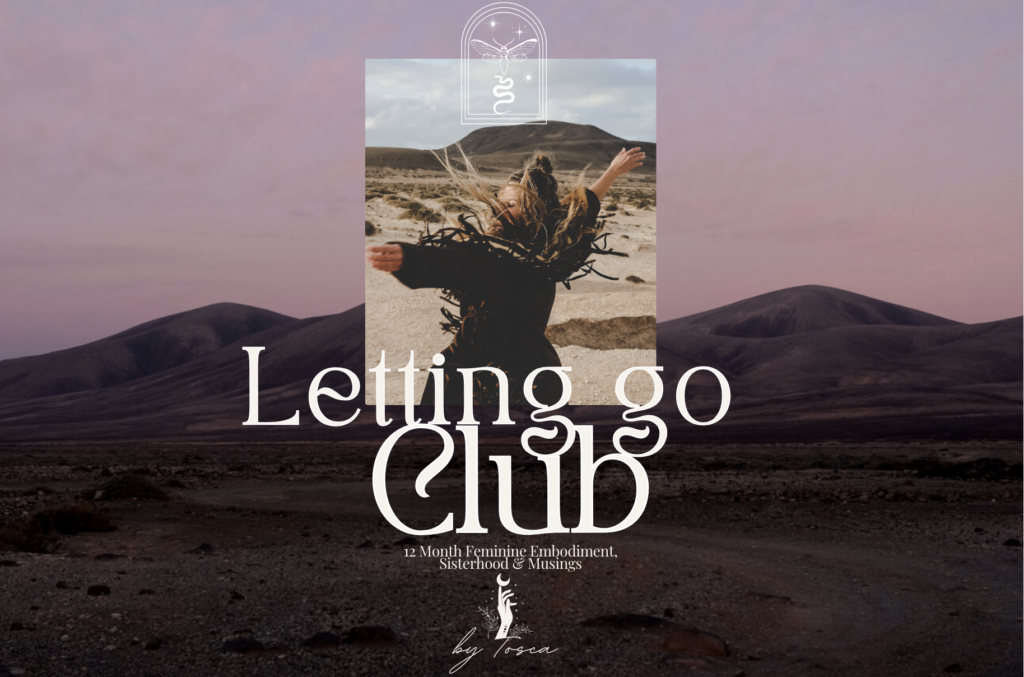
Reclaim your energy. Reclaim your power. Embrace your feminine flow. Sign up here.
Criticism and Perfectionism
- Being constantly criticized or compared to others, making you feel you’re never “good enough.”
- Internalizing a belief that you must achieve or perform to earn love and approval.
Lack of Nurturing or Emotional Availability
- A mother who was emotionally distant or unavailable, leaving you to fend for yourself emotionally.
- Feeling neglected, unsupported, or invisible.
Cultural or Societal Expectations
- A mother who passed down cultural norms that reinforced the need to prioritize others over yourself.
- Messages that being a “good woman” requires self-sacrifice or denying your needs.
Body Image and Appearance
- Receiving criticism about your body or appearance, leading to low self-esteem or body shame.
- Being taught that your worth is tied to how you look or present yourself to the world.
Unspoken Grief or Trauma
- Absorbing your mother’s unresolved grief, trauma, or pain without understanding its source.
- A sense of sadness or anxiety that feels inherited but hard to pinpoint.
Rejection or Conditional Love
- Feeling that love was conditional upon your behavior or achievements.
- Experiences of being rejected or emotionally abandoned during times of need.
Gender-Based Limitations
- Messages that limited your potential because of your gender.
- Being discouraged from expressing strength, ambition, or independence.
Unhealthy Relationship Modeling
- Witnessing unhealthy dynamics in your mother’s relationships, such as codependency or toxic partnerships.
- Learning to normalize unhealthy or abusive behavior in your own relationships.
Shame or Judgment
- Feeling judged or shamed by your mother for your choices, feelings, or identity.
- Inherited shame from your mother about sexuality, femininity, or personal expression.
Lack of Boundaries
- Growing up with no clear boundaries between you and your mother, making it hard to set boundaries in your adult relationships.
- Feeling like you could never say “no” to your mother or assert your needs.
Favoritism or Sibling Rivalry
- Feeling overlooked or less valued compared to a sibling.
- Internalizing beliefs that love is scarce or must be competed for.
Abandonment or Absence
- Experiencing physical or emotional abandonment, either due to circumstances (e.g., divorce, death, work) or choice.
- Struggling with attachment issues or fear of rejection in adult relationships.
Unrealistic Expectations
- Feeling pressured to fulfill your mother’s unmet dreams or expectations.
- A sense that you’re responsible for her happiness or success.
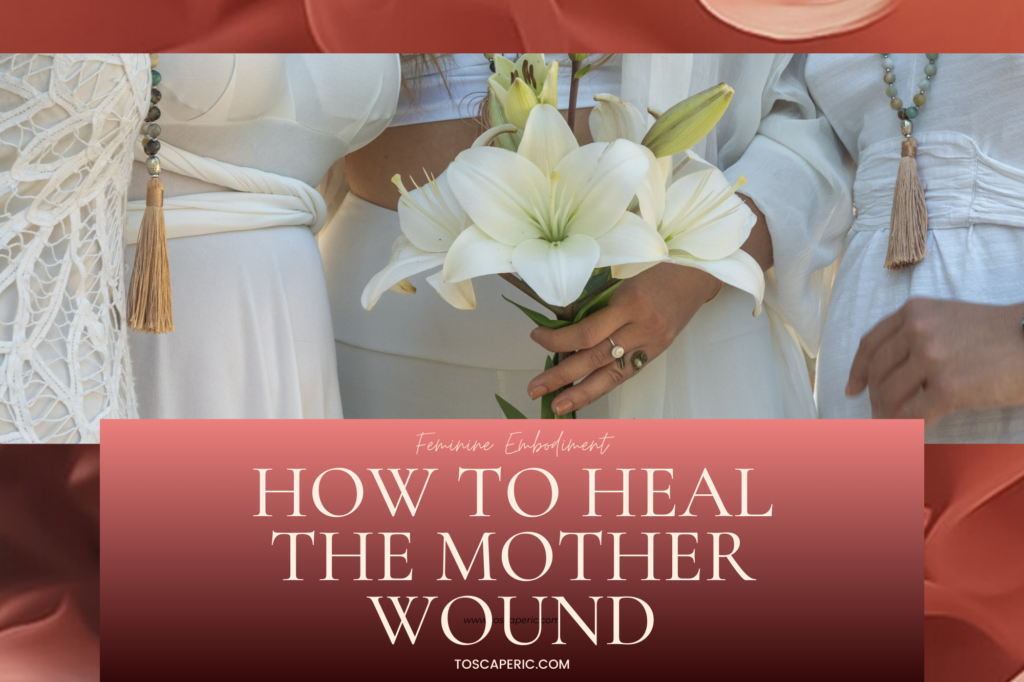
You may think: Tosca, how does the motherwound affect me?
How the Mother Wound Affects Self-Love
The mother wound often operates in subtle, pervasive ways, creating a disconnect between your authentic self and the unconditional self-love you deserve. When this wound remains unhealed, it shapes how you perceive yourself, how you show up in relationships, and even how you interact with the world at large. This disconnection can feel like an invisible barrier, keeping you from embracing your inner goddess—your source of wisdom, intuition, and boundless love.
Here are some common ways the mother wound affects self-love and how it shows up in everyday life:
1. Struggling With Self-Care and Feeling Guilty for Prioritizing Yourself
One of the hallmarks of the mother wound is the belief that taking care of yourself is selfish. If your mother consistently put others before herself or neglected her own needs, you may have learned that your value lies in what you do for others, not in simply being who you are.
- Signs:
- You feel guilty for resting or saying no.
- You prioritize others’ needs, even when it harms your physical or emotional well-being.
- You feel like you have to “earn” self-care through hard work or sacrifice.
- Impact on Self-Love:
This pattern prevents you from recognizing that your well-being matters. When you constantly pour from an empty cup, you reinforce the idea that your worth is tied solely to your utility. - Path to Healing:
Start small. Allow yourself moments of self-care—without guilt—and remind yourself that nurturing yourself isn’t indulgent; it’s necessary. Reframe self-care as an act of self-respect and divine worship of the goddess within you.
2. Sabotaging Relationships Out of Fear of Abandonment or Rejection
The mother wound often creates a fear that love is conditional or fleeting. If your relationship with your mother involved inconsistent affection, criticism, or emotional withdrawal, you may carry this uncertainty into your adult relationships.
- Signs:
- You push people away when they get too close, fearing they’ll abandon you.
- You cling to relationships that no longer serve you, afraid of being alone.
- You struggle to trust others, always waiting for the “other shoe to drop.”
- Impact on Self-Love:
This fear reinforces the belief that you are not inherently lovable and that love must be earned through effort or conformity. It can leave you feeling isolated and disconnected, even in the presence of others. - Path to Healing:
Practice self-soothing techniques, such as affirmations or inner child work, to remind yourself that love is not contingent on perfection or performance. Cultivate relationships that honor your worth and practice releasing those that don’t.
3. Carrying Perfectionism and Feeling Unworthy Unless You Excel
The mother wound often instills the idea that you are only valuable when you achieve or perform. This can lead to relentless perfectionism, where you feel driven to constantly prove your worth by excelling in every area of life.
- Signs:
- You feel like you can’t relax until everything is “perfect.”
- You avoid trying new things for fear of failure or criticism.
- You derive your sense of self-worth almost entirely from external achievements.
- Impact on Self-Love:
Perfectionism traps you in a cycle of self-criticism and burnout. By tying your worth to your accomplishments, you lose sight of the fact that you are already enough, just as you are. - Path to Healing:
Begin by practicing self-compassion and celebrating your progress, not just your results. Challenge the belief that perfection is a prerequisite for love and worthiness. Reaffirm that you are deserving of joy, even when you are imperfect.
4. Suppressing Your True Desires, Fearing They Might Be “Too Much”
For many women, the mother wound teaches that being too loud, ambitious, emotional, or unique will result in rejection or criticism. You may have been told—directly or indirectly—to dim your light, avoid “making waves,” or fit into societal expectations.
- Signs:
- You downplay your achievements or desires to avoid standing out.
- You hesitate to pursue your dreams, fearing judgment or failure.
- You feel like you have to shrink yourself to make others comfortable.
- Impact on Self-Love:
When you suppress your desires, you sever your connection to your inner goddess—the part of you that is bold, creative, and unapologetically authentic. This creates a cycle of self-denial and resentment. - Path to Healing:
Reclaim your voice by exploring what truly brings you joy, regardless of external validation. Practice saying “yes” to yourself and “no” to expectations that don’t align with your truth. Allow your inner goddess to take up space and shine unapologetically.

Reclaiming the Silenced Parts of Yourself
Healing the mother wound is an act of rebellion against the narratives that have silenced your desires, dimmed your light, and disconnected you from your power. It’s about more than just fixing old wounds—it’s about rediscovering the parts of yourself you’ve hidden, rejected, or neglected.
Steps to Reclaiming Your Inner Goddess
- Embrace Your Flaws: Let go of the idea that you must be perfect to be worthy of love. Instead, honor your imperfections as part of your humanity and unique beauty.
- Celebrate Your Unique Voice: Take time to reflect on what makes you you. Your quirks, dreams, and desires are sacred expressions of your divine essence.
- Reconnect With Your Feminine Energy: Use practices like dance, meditation, or creative expression to reconnect with your body and intuition. Honor your feminine power as a source of strength and love.
- Forgive Yourself and Others: Release the burden of resentment—toward yourself or your mother. Forgiveness is not about excusing harm; it’s about freeing yourself to move forward with love and grace.
- Create Rituals of Self-Love: Infuse your daily life with rituals that affirm your worth, such as lighting a candle to honor your inner goddess or journaling about your dreams and desires.
The Transformation Ahead
Healing the mother wound is not an overnight process—it’s a sacred journey of rediscovery, growth, and self-compassion. As you reconnect with your inner goddess, you’ll begin to see yourself not as a product of your wounds, but as a radiant, whole being capable of profound love and joy.
When you heal, you create a ripple effect of empowerment—not just for yourself, but for future generations and those who witness your transformation. You’re not just healing the past—you’re reclaiming your future.
Remember, you are worthy of love, care, and freedom simply because you exist. Your inner goddess has always been there, waiting for you to come home to her. And she is ready to rise. 🌹
You may think, okay Tosca, but how do I heal the motherwound?
Healing the Mother Wound: A Journey to Freedom and Wholeness
Healing the mother wound is a deeply personal and transformative journey that requires patience, courage, and self-compassion—and often, the support of a specialized coach or mentor (like me). This journey isn’t about blaming or rejecting your mother; it’s about reclaiming your power, finding your voice, and reconnecting with the parts of yourself that have been silenced.
While no single approach works for everyone, there are powerful practices and insights that can guide you toward reclaiming your self-worth, reconnecting with your divine feminine energy, and releasing the emotional burdens you’ve carried. Here’s how you can begin:

If you’re enjoying this, subscribe to my self-love letters for free.
1. Awareness: Understanding Your Unique Wound
Every mother wound is unique, shaped by the dynamics of your relationship with your mother and the societal or cultural influences surrounding you. Start by exploring how this wound manifests in your life.
- Reflection Questions:
- What beliefs about yourself or the world might stem from your relationship with your mother?
- How do these beliefs influence your self-worth, relationships, or choices?
- Where do you feel “stuck,” and how might this tie to unmet needs from your past?
Awareness is the foundation for healing. It allows you to name the patterns and pain so that you can work to change them.
2. Permission to Feel: Embracing and Processing Emotions
Healing begins when you allow yourself to feel the emotions you may have suppressed—grief, anger, resentment, or even love and longing. These emotions are valid and deserve space to be processed.
- Journaling Exercise: Write a letter to your mother (you don’t have to send it). Express everything you’ve held back, whether it’s anger, sadness, or gratitude. This can help you release bottled-up emotions.
- Somatic Practices: Move your body to release emotional energy stored within. This could be through yoga, dancing, or shaking.
- Safe Space for Emotions: Whether with a trusted coach, therapist, or support group, creating a safe environment to express your feelings can accelerate healing.
3. Reparenting: Becoming Your Own Nurturer
Often, the mother wound leaves a gap where nurturing, validation, or unconditional love should have been. Reparenting is the process of giving yourself what you needed but didn’t receive.
- Affirmations: Speak to yourself with kindness. Say things like, “I am loved,” “I am safe,” and “I am worthy.” “I understand that my mother was wounded too.” “My mother was doing the best she could at the time.” “I release my need for my mother to be perfect.” “I free myself from the need to have a perfect mother or be a perfect daughter.”
- Inner Child Work: Visualize yourself as a child and imagine comforting, protecting, and nurturing her. Offer her the unconditional love she may not have felt.
- Daily Acts of Care: Prioritize self-care rituals that honor your worth, whether it’s making yourself a nourishing meal, resting when you need to, or indulging in something that brings you joy.
- Learn powerful techniques and tools to heal the mother wound in my transformational online course, goddess medicine here.
4. Challenging Limiting Beliefs
The mother wound often instills beliefs that can keep you small or disconnected from your power. Identify these beliefs and rewrite them.
- Identify the Narrative: For example, do you believe “I’m not good enough,” “I have to earn love,” or “I’m too much”?
- Rewrite Your Story: Replace those beliefs with empowering affirmations, like “I am inherently worthy,” “I am loved for who I am, not what I do,” and “My voice matters.”
- Seek Support: A coach or mentor can help you identify and reframe these beliefs effectively. Learn here more.
5. Set Boundaries and Claim Your Space
If the mother wound has made you feel responsible for others’ emotions or needs, learning to set boundaries is vital. Boundaries allow you to prioritize your well-being without guilt.
- Practice Saying No: Start small. When someone asks for something that feels overwhelming, give yourself permission to decline.
- Release Guilt: Remind yourself that setting boundaries is not selfish—it’s a form of self-respect.
- Focus on What Feels Good: Boundaries don’t just block out negativity; they create space for what nourishes and uplifts you.
6. Reconnect With Your Divine Feminine Energy
The mother wound often disconnects us from the powerful, intuitive, and creative energy of the divine feminine. Reclaiming this energy is a profound part of the healing journey.
- Sacred Rituals: Light candles, take baths with essential oils, or meditate with crystals to create a sacred space for yourself.
- Creative Expression: Paint, dance, sing, or write as a way to connect with your inner goddess.
- Body Awareness: Practices like belly dancing, yoga, or sensual movement help you reconnect with your body and its wisdom.
7. Forgiveness: Releasing the Past
Forgiveness is not about excusing harmful behavior—it’s about freeing yourself from the weight of resentment. This step is often one of the most challenging but also one of the most liberating.
- Start With Compassion: Reflect on your mother’s story. What wounds or societal pressures might have shaped her behavior?
- Forgive Yourself: If you carry guilt for your feelings or for “not being a better daughter,” let it go. You did the best you could with the tools you had at the time.
- Let Go Gradually: Forgiveness doesn’t have to happen all at once. Take your time and move at your own pace.
8. Seek Support From a Specialized Mentor
Healing the mother wound is complex, and having someone guide you can make all the difference. A specialized coach or mentor (like me) can offer tailored practices, insights, and support to help you navigate this journey with confidence.
- Personalized Guidance: A mentor can help you uncover hidden patterns, identify blind spots, and create a customized healing plan.
- Accountability and Support: Healing can feel overwhelming, but a coach can hold you accountable and cheer you on every step of the way.
- Sacred Space: Having a safe, nonjudgmental space to share your experiences can be incredibly healing in itself.
9. Celebrate Your Progress
Healing is not a linear journey—it’s a dance of highs and lows, breakthroughs and setbacks. Celebrate every step forward, no matter how small.
- Gratitude Practice: Acknowledge the growth you’ve already achieved. Write down three things you’re proud of each week.
- Honor Your Journey: Treat yourself to something special—like a ritual bath, a piece of jewelry, or time in nature—to honor how far you’ve come.
- Recognize Your Inner Goddess: You are already whole, powerful, and radiant. The healing process is simply a journey back to your truest self.
Ready to Begin?
If you feel called to explore this transformative work deeper, I invite you to join me in my program, Goddess Medicine. This program is designed to guide you step-by-step through healing the mother wound, reconnecting with your divine feminine, and reclaiming your power. Together, we will create a sacred space where you can feel seen, supported, and empowered.
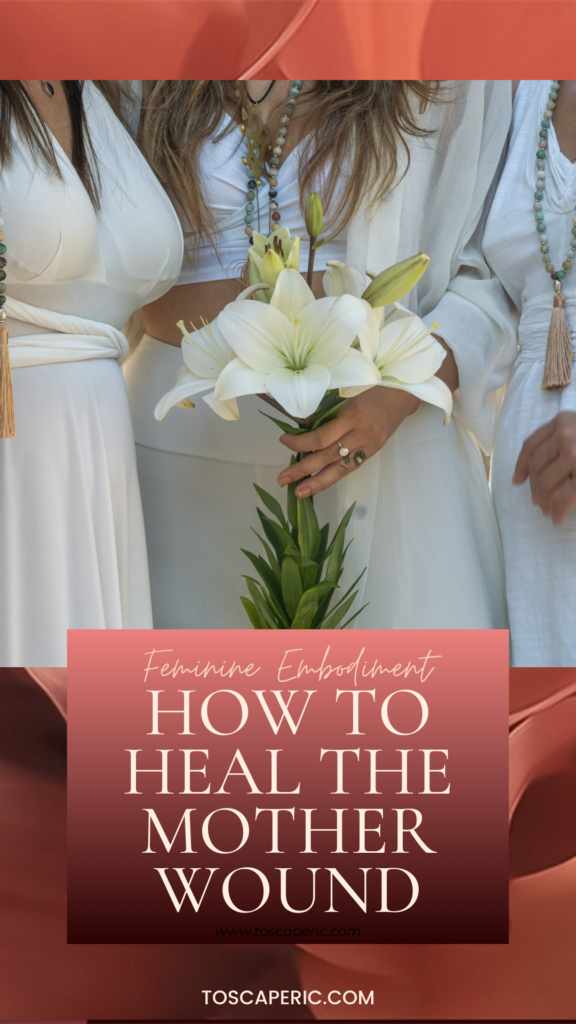

You are worthy of love. You are worthy of freedom. You are worthy of the life your inner goddess is calling you to live. Let’s embark on this journey together. 🌸
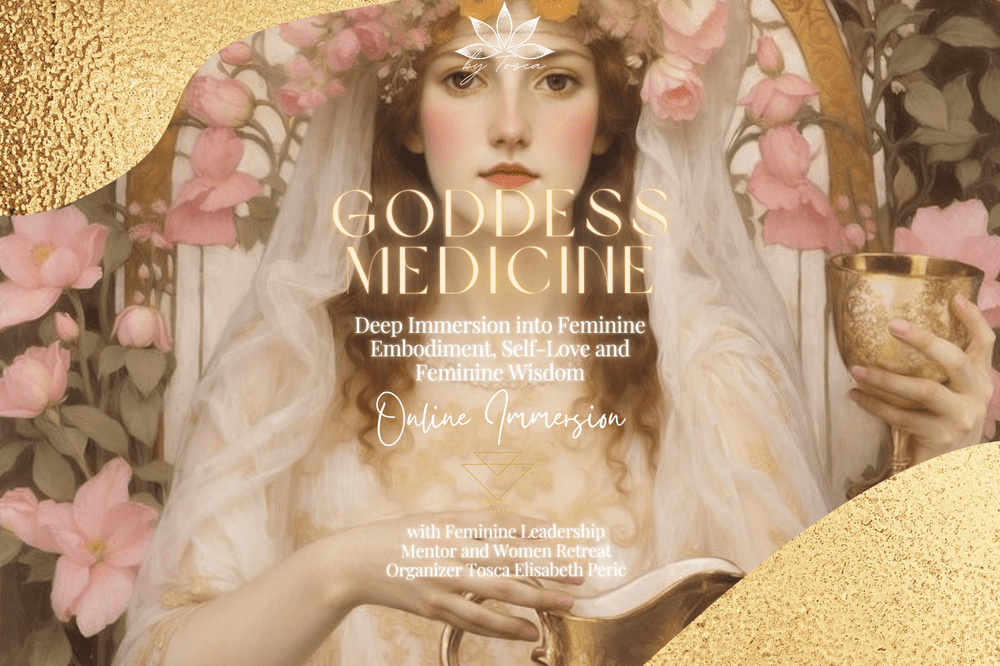
Family dynamics often shape two types of children: those who unconsciously repeat the cycles of pain, dysfunction, and unresolved trauma, and those who courageously choose to break free and heal.
Repeating the cycle often stems from a lack of awareness or the belief that things cannot change, while breaking free from generational trauma and the cycle requires bravery, introspection, and intentional effort. You have the power to decide which path you’ll take.
Do you want to address your mother wound, transform your pain into empowerment, and step into your most authentic self? Join my course or sign up for Goddess Medicine today and start your journey toward healing and freedom. Your future self is waiting.
Keep reading about the Mother Wound:
How The Mother Wounds Affect Us
Finding Forgiveness for the Mother Wound

